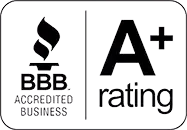As a nonprofit organization, ensuring compliance with tax regulations is crucial. One common question that arises is whether 1099 forms are required for a 501(c)(3) nonprofit. This guide will help clarify when and why your nonprofit might need to issue 1099 forms, ensuring you stay compliant with IRS regulations.
What are 1099 forms?
Taxpayers use 1099 forms to report various types of income to the Internal Revenue Service (IRS) and the individuals or entities that received the income. They primarily use these forms for payments made to non-employees, such as independent contractors, freelancers, and service providers.
Do nonprofits need to issue 1099 forms?
Yes, nonprofits are required to issue 1099 forms under certain circumstances. The same rules that apply to for-profit organizations apply to 501(c)(3) nonprofits regarding reporting non-employee compensation.
When are 1099 forms required for nonprofits?
Nonprofits must issue a 1099 form if they meet the following criteria:
- Independent Contractors: Payments of $600 or more in a year to independent contractors or service providers.
- Rent: Payments of $600 or more for rent, which could include office space or equipment rental.
- Prizes and Awards: Any prizes or awards of $600 or more that are not for services performed.
- Other Income Payments: Miscellaneous income payments of $600 or more.
Relevant 1099 forms for nonprofits
The most common 1099 forms that a nonprofit might need to issue include:
- 1099-NEC: For reporting payments of $600 or more to non-employees for services performed.
- 1099-MISC: For reporting other types of payments, such as rent or prizes, that total $600 or more.
Exceptions to issuing 1099s
Certain payments do not require a 1099 form, including:
- Payments to Corporations: Generally, payments to a corporation (excluding law firms) are not reportable.
- Employee Wages: Payments to employees, which are reported on W-2 forms.
- Payments for Merchandise: Payments for merchandise, telephone, freight, storage, and similar items.
How to issue 1099 Forms?
- Gather Information: Collect the necessary information from your vendors, contractors, and service providers using Form W-9.
- Complete the 1099 Form: Fill out the appropriate 1099 form with the payee’s information and the amount paid.
- File with the IRS: Submit the 1099 forms to the IRS by the due date, typically January 31st for the preceding tax year.
- Send to Payee: Provide a copy of the 1099 form to the payee by January 31st.
What happens when you don’t file a 1099?
Failing to file Form 1099 by the January 31 deadline can result in significant IRS penalties. If taxpayers do not file or file late, the fines range from $50 to $270 per form, depending on how long past the deadline they submit the form. These penalties can quickly add up, especially if taxpayers fail to file multiple forms. Ensuring timely submission of 1099s is crucial to avoid these financial repercussions and maintain compliance with IRS regulations.
Best practices for nonprofits
- Maintain Accurate Records: Keep detailed records of all payments made to non-employees and vendors.
- Use Accounting Software: Consider using accounting software that can help track payments and generate 1099 forms.
- Regular Reviews: Conduct regular reviews of your payment records to ensure all required 1099s are issued.
What happens if I lose my 1099?
Losing a 1099 is a common issue, but obtaining a replacement is straightforward. Here’s what you need to do:
- Contact the issuer: Reach out to the business that issued your 1099 and request a replacement form.
- Verify Your identity: The issuer may ask for personal information such as your Social Security number, full name, and possibly your address or phone number to verify your identity.
- Safeguard your documents: Once you receive your replacement 1099, store it securely with your other tax documents to ensure you have everything you need when it’s time to file your taxes.
By following these steps, you can easily replace a lost 1099 and stay on track with your tax filings.
Conclusion
For most cases, 1099 forms are required for nonprofit 501c3. By following the guidelines and ensuring compliance, your nonprofit can avoid penalties and maintain good standing with the IRS. If you have any doubts or need assistance, consider consulting with a tax professional experienced in nonprofit tax law.
By keeping accurate records and staying informed about tax regulations, your nonprofit can focus on its mission without the worry of tax compliance issues.


